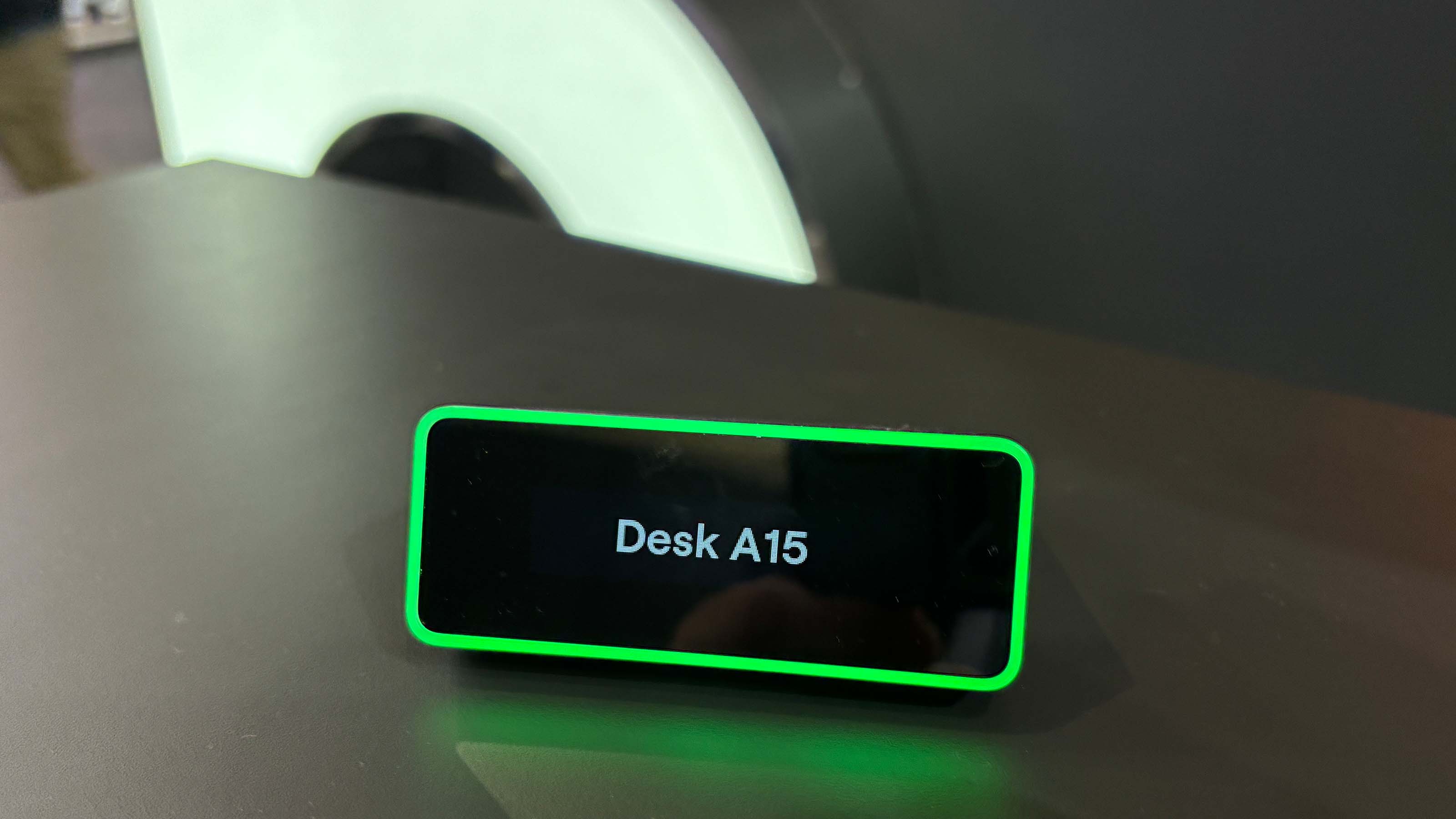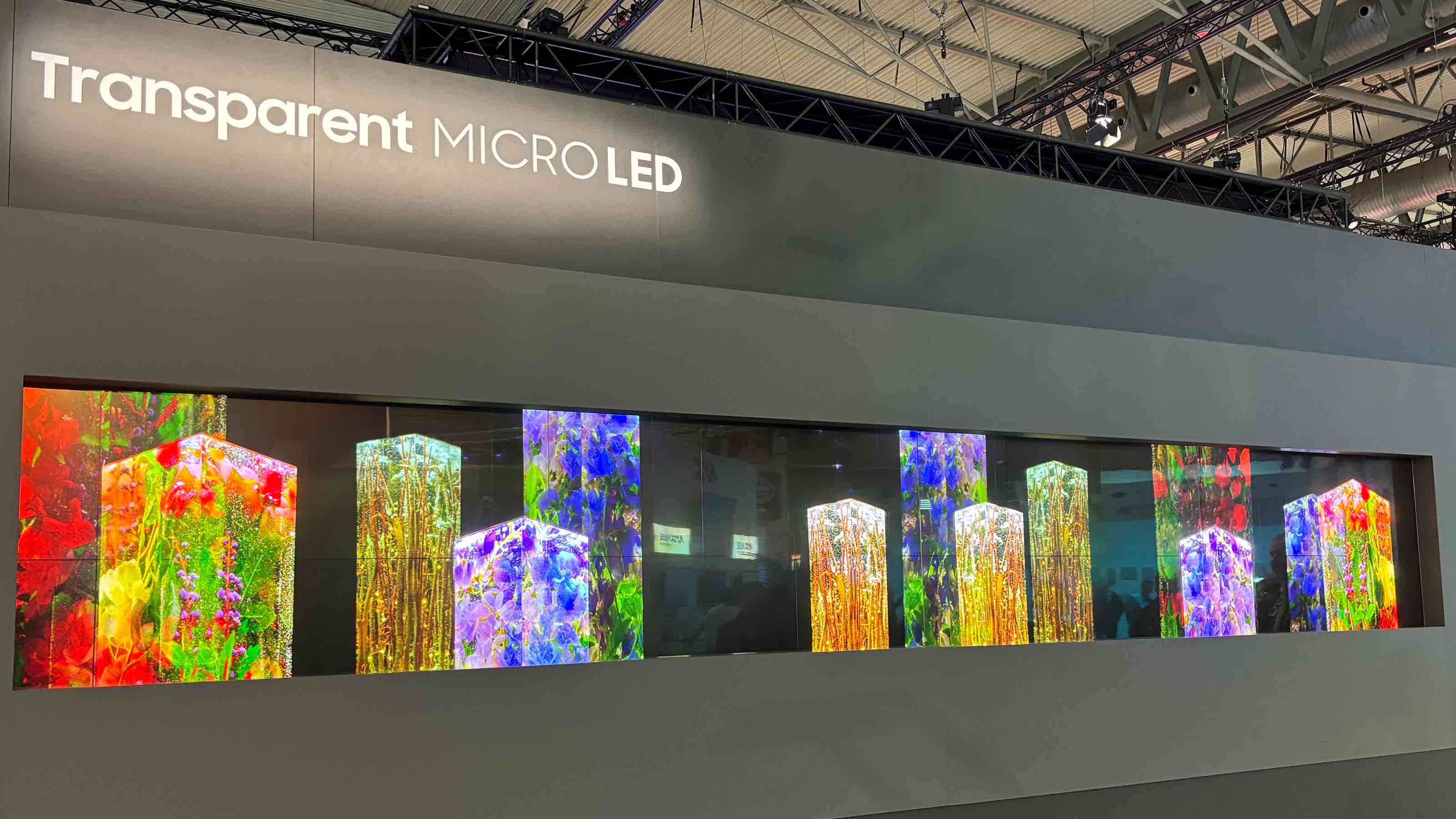If you weren't able to attend ISE 2024 in Barcelona last week, you missed a lot. Luckily, you're going to get a chance to see much of it in June if you're heading out to InfoComm 2024. There are three product areas in particular that are gaining momentum and should be on full display when the show floor opens on June 12, though the first one is admittedly designed to be looked through.
[ISE 2024 Analysis: Big Show Focused on the Little Things]
Now You See It
A recurring theme from display manufacturers this year was transparent signage. Companies like LG and Samsung showcased their own versions of the technology, which brings a new level of promotion to a retail display area. It's not a brand-new concept, and photos don't do the effect justice, but there's a definite push toward making it more mainstream. I suspect you will see this eye-catching tool become more commonplace in the near future, starting with several exhibits at InfoComm.
Year of the Hotdesk
Room scheduling is well established at this point, but hotdesking … well, is it really taking off? Many exhibitors think so; after all, hybrid workspaces aren't going away anytime soon, and flexible seating is a problem that needs solving.
[Winners Announced: Best of Show at Integrated Systems Europe 2024 for AV Technology]
You can expect to see plenty of solutions at InfoComm. For example, Anders Karlsson, CEO of Humly, said the company will be focused on the North American market in 2024. At ISE, Humly showed off two accessories for the compact Humly Booking Device, which can be mounted on or below a working surface and indicates on its LCD display (via green or red lighting) if the work area is available or occupied.
The first add-on provides PoE power to the Humly Booking Device as well as a connection to control desk positions, so adjustable desks can be automatically positioned according to the user's preferences. The second accessory, ideal for phone booth-styled meeting spaces, is an external sensor that switches the device to "booked" mode (red) when someone enters the space.

Biamp announced its acquisition of Evoko, a Sweden-based manufacturer of scheduling systems, last year. Joe Andrulis, Biamp's EVP of corporate development, said hotdesking is an "emerging category" for the company, and it's being addressed through its Evoko-branded solutions. Andrulis praised the Evoko Liso room manager and Kleeo desk manager, but said the "magic" happens in the cloud-based Evoko Desk Booking Software.
An Emphasis on the Ecosystem
Finally, it's all about the ecosystem. Manufacturers are working hard to make it easier to manage and monitor their equipment. With an ever-growing number of cloud-based software solutions, there seems to be a concerted effort across the industry to reduce truck rolls and resolve problems remotely.
Kramer, for example, unveiled Panta Rhei, its own cloud-based platform designed to manage complex environments. Developed over two years, it manages the entire lifecycle of Kramer products, including setup and management, monitor and support, analytics, session management, AVoIP management, and administration. Panta Rhei also serves as bridge between Kramer and third-party products. Gilad Yron, Kramer's CEO, said the platform represents a "significant shift" from hardware-based solutions to software.
[Christie on 20 Years of Exhibiting at ISE]
Of course, some companies have a broader definition of the ecosystem. There's a lot of talk these days about return-to-office, hybrid workflows, and running office environments more efficiently. One company that's addressing these needs—and offering a potential recurring revenue opportunity for systems integrators—is Ask UMA. The company was established in 2016 and began delivering solutions in 2020.

As Stephen Milner, chief strategy officer, explained, the company provides a workplace management software platform designed to optimize spaces for efficiency and sustainability. It's a modular solution that provides resource booking, visitor management, analytics, and more. Basically, Ask UMA provides data—a lot of data—that helps companies save money on things like space usage and utilities, while also tracking hybrid employee activities.
The software is agnostic and can work with most leading platforms, and already has integrations with AMX, Jabra, Poly, Yealink, and others. Milner added that Ask UMA is usually backward compatible, so integrators can approach previous clients with the opportunity to improve operations and sustainability through the platform. The company is already active in 27 territories, including the United States, and has about 100,000 unique users.
No confirmation yet on whether Ask UMA will be exhibiting at InfoComm—but if they make the trip, you might want to add a visit to your to-do list.

